
Neil Peart
It was one of the saddest days in music history when we lost Rush drummer and lyricist Neil Peart to brain cancer last week. There will never be another like him, and, his passing is impacting each of his fans in ways that they are only just beginning to discover as they recall what that music and Peart’s lyrics have meant to them over the last 45 years.
The death of Neil Peart is freaking me out because he wrote about my life. There is no way I can separate my life from what that man’s music and lyrics have meant to me. I became a Rush fan, instantly, when the kid next door to me in Derry, New Hampshire brought over his 2112 album. The sound blew me away, and the since then usual “can you believe it’s just three guys making all of that music” comment has stayed in my head. It is hard to believe that only three musicians can play all of that music. More importantly, it’s even harder to believe that one man, Neil Peart, could come up with most of the lyrics that were sung to that very accessible, chart climbing prog rock.
Peart’s science fiction inspired lyrics for songs like “By-tor And The Snow Dog,” “The Necromancer,” “2112,” “The Twilight Zone,” and “Cygnus X-1” reminded me of myself watching all of those old science fiction movies that I grew up with. I discovered Rush shortly before Star Wars had transformed science fiction from its original purpose of conceptual thinking into a glossy, special and sound effects laden action adventure thing. “Red Barchetta,” off of Rush’s 1981 Moving Pictures album, reminded me of everything from Logan Run to Planet Of The Apes to Fahrenheit 451.” Peart’s lyrics to “The Body Electric” from Rush’s Grace Under Pressure album hearkened back to the Isaac Asimov theory that robots could one day develop emotions: “Unit one’s in trouble and scared out of its wits.”
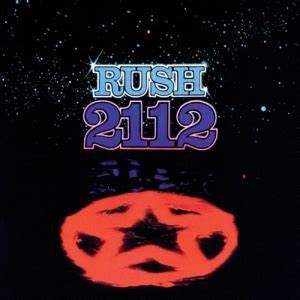 After sinking my teeth into these wondrous lyrical tales, I discovered that Peart, like The Who’s Pete Townsend, could relate to the youth that were turning onto his music ten years after its public debut. Moving Pictures offered the bombastic staple of their live show “Tom Sawyer.” Lyrics about being independent of “god and government” and “hopeful yet discontent” struck a chord with me. I was not sure, at that time in my life, who or what I wanted to sign up with, and so I just decided to be myself , my own person, and not sign up with anyone or anything. Rush’s harrowing song from Moving Pictures, “Fear, Part III,” with its depictions of narrow minded zealots confidently deciding what’s best for everyone else, stuck a chord too, albeit a different one. It was the dawn of a new age of religious evangelicalism in the country and I was particularly annoyed with anyone who wanted to tell me how to live my life then back up their spiel by taking a Bible verse out of context and throwing it in my face. 1982’s follow up album, Signals, featured what is now a radio staple for Rush: “Subdivisions.” Concerned with growing up in rural suburbia is essentially boring, and I was glad a song finally came right out and said it: “The suburbs have no charms to sooth the restless dreams of youths.” Peart hit another mark in the same song: “Nowhere is the dreamer or the misfit so alone.” I could identify with that and so could my small circle of friends.
After sinking my teeth into these wondrous lyrical tales, I discovered that Peart, like The Who’s Pete Townsend, could relate to the youth that were turning onto his music ten years after its public debut. Moving Pictures offered the bombastic staple of their live show “Tom Sawyer.” Lyrics about being independent of “god and government” and “hopeful yet discontent” struck a chord with me. I was not sure, at that time in my life, who or what I wanted to sign up with, and so I just decided to be myself , my own person, and not sign up with anyone or anything. Rush’s harrowing song from Moving Pictures, “Fear, Part III,” with its depictions of narrow minded zealots confidently deciding what’s best for everyone else, stuck a chord too, albeit a different one. It was the dawn of a new age of religious evangelicalism in the country and I was particularly annoyed with anyone who wanted to tell me how to live my life then back up their spiel by taking a Bible verse out of context and throwing it in my face. 1982’s follow up album, Signals, featured what is now a radio staple for Rush: “Subdivisions.” Concerned with growing up in rural suburbia is essentially boring, and I was glad a song finally came right out and said it: “The suburbs have no charms to sooth the restless dreams of youths.” Peart hit another mark in the same song: “Nowhere is the dreamer or the misfit so alone.” I could identify with that and so could my small circle of friends.
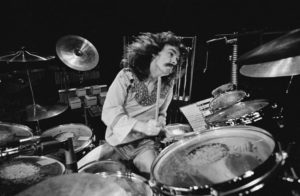
Neil Peart
Becoming a writer was also something that was happening to me at that time. I realized I could appreciate and identify with Neil Peart’s economy of words as well as how he shifted nouns and verbs into just the right place to inject action into his message: “Off on your way/Hit the open road/There is magic at your fingers/For the spirit ever lingers/Undemanding contact/In your happy solitude.” This second verse from “Spirit Of Radio,” Rush’s opening track to 1980s’s Permanent Waves album, offers indisputable proof of Peart’s pro writer chops. The placement of the words “Off” and “Hit” push the song’s concept forward while being the most succinct way ever of describing the joy of cruising down the road with the radio on. Descriptions like “magic at your fingers/For the spirit ever lingers” describe listening to one’s car radio as both a universal and transcendent theme. This song also alludes to a certain Simon and Garfunkel tune: “For the words of the profits/Are written on the studio wall/Concert hall/Echoes with the sounds of salesmen.” In just song Peart describes of the joy of radio while warning of the dangers facing the music industry before offering hope to artists of their time that “it’s really just a matter of your honesty.” Bravo.
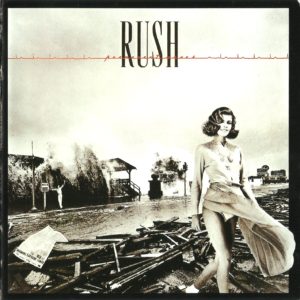 Having grown up in the transformative era of undaunted feminism made me appreciate the lyrics on another Rush album, Counterparts. Its opening track “Animate” was based on Carl Jung’s theory that the compatible emotions and thoughts of both sexes needed to be brought together through conscious choice for better understanding of the opposite sex: “Goddess in my garden/Sister in my soul/Angel in my armor/Actress in my role/Daughter of a demon-lover/Empress of the hidden face/Priestess of the pagan mother/Ancient queen of inner space/Spirit in my psyche/Double in my role/
Having grown up in the transformative era of undaunted feminism made me appreciate the lyrics on another Rush album, Counterparts. Its opening track “Animate” was based on Carl Jung’s theory that the compatible emotions and thoughts of both sexes needed to be brought together through conscious choice for better understanding of the opposite sex: “Goddess in my garden/Sister in my soul/Angel in my armor/Actress in my role/Daughter of a demon-lover/Empress of the hidden face/Priestess of the pagan mother/Ancient queen of inner space/Spirit in my psyche/Double in my role/
Alter in my image/Struggle for control.”
Counterparts also featured the minor radio hit “Nobody’s Hero,” Peart’s posthumous recollection of an old friend who had died of Aids: “I knew he was different, in his sexuality/I went to his parties, as a straight minority/It never seemed a threat to my masculinity/He only introduced me to a wider reality.” This song jumped out at me for its bold support of the gay community. Rock stars were supposed to be macho, swaggering, chick magnets. Yet, here was Peart, an athletic drummer, talking about the benefits of attending gay parties as a straight minority. The songs also fit in with my own view of the world. I could never figure out why people hated each other over superficial differences and here was my favorite lyricist from my favorite band ever expressing something universal about us all.
The most important thing I’ve learned about writing is that there is always room for growth and improvement. So, I can barely find the words to express the awe I felt when I learned that the man many call “the greatest drummer in the world” connected with jazz drummer Freddie Gruber for drum lessons because he wanted to take his game up a few notches. Peart would never rest on his laurels, choosing to push himself to a higher level, growing and evolving as a drummer despite the heights he had achieved in previous years.
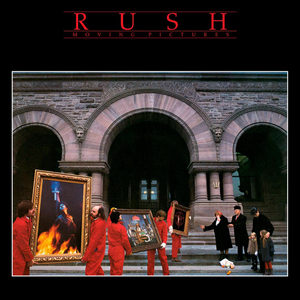 Test For Echo, released in 1996, was the first Rush album made after Peart had learned his new chops from Gruber. This might have inspired Peart to reach out to everyone in the whole wide world, to plead that it was time for everyone to meet everyone else half way, to see what those on the other side were thinking and feeling. His lyrics to Test For Echo’s “Half The World” accurately describe the current trends in human relations: “Half the world hates/What half the world does every day/Half the world waits/While half gets on with it anyway.” It’s pretty heady stuff when you think about it. This song could be referring to the divide caused by political correctness or the fierce opinions everyone seems to have these days about which TV shows to watch, what music to listen to, what kinds of food to eat, which beers we should drink, and why we should love or hate them.
Test For Echo, released in 1996, was the first Rush album made after Peart had learned his new chops from Gruber. This might have inspired Peart to reach out to everyone in the whole wide world, to plead that it was time for everyone to meet everyone else half way, to see what those on the other side were thinking and feeling. His lyrics to Test For Echo’s “Half The World” accurately describe the current trends in human relations: “Half the world hates/What half the world does every day/Half the world waits/While half gets on with it anyway.” It’s pretty heady stuff when you think about it. This song could be referring to the divide caused by political correctness or the fierce opinions everyone seems to have these days about which TV shows to watch, what music to listen to, what kinds of food to eat, which beers we should drink, and why we should love or hate them.
Moving deeper into the 1990s, Neal Peart and Rush had begun growing older, and so was I. As we age, we tend to focus less on one self as the center of the world with an eye towards the quality of life of other human beings. I could identify when Neil Peart penned these lyrics to “Roll The Bones” from 1991’s Rush album of the same title: “Faith is cold as ice/Why are little ones born only to suffer/For the want of immunity/Or a bowl of rice.”
Another 20 years go by and Rush’s lyrical identity had become totally forged with more spiritual concerns. The trio’s 2007 release, Snakes And Arrows, featured the song “A Larger Bowl,” a cry for everyone to be able to share from the same good fortune: “Some are blessed and some are cursed/The golden one or scarred from birth/While others only see the worst/Such a lot of pain on the earth.” Those new, more mature themes were reminding me of myself as I would wonder why there had to be homelessness, hunger, poverty, and people who will never have a chance to make a better life for themselves, to grab hold of all that this world has to offer.
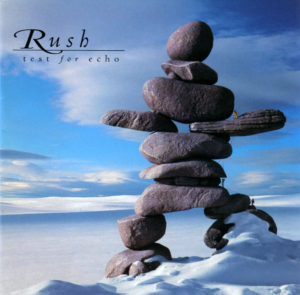 Nearing the end of Rush’s recording career, Neil Peart, and his trio mates, unlike others from the classic rock era, playing worn out hits on countless reunion tours, soldiered onward. They released, in 2012, an album of not only new material but a concept album/rock opera titled Clockwork Angels. Concerned with a young man’s need to grow and evolve in a land controlled by an ominous Watcher, the album, again, finds the band focusing on the need to be wary of someone setting himself up as the knows what best for all and should be in control of everything agent. Despite the album’s futuristic setting, it reminds of the wariness I and others are feeling towards what we’re being spoon fed by the media and those who know how to manipulate us through it.
Nearing the end of Rush’s recording career, Neil Peart, and his trio mates, unlike others from the classic rock era, playing worn out hits on countless reunion tours, soldiered onward. They released, in 2012, an album of not only new material but a concept album/rock opera titled Clockwork Angels. Concerned with a young man’s need to grow and evolve in a land controlled by an ominous Watcher, the album, again, finds the band focusing on the need to be wary of someone setting himself up as the knows what best for all and should be in control of everything agent. Despite the album’s futuristic setting, it reminds of the wariness I and others are feeling towards what we’re being spoon fed by the media and those who know how to manipulate us through it.
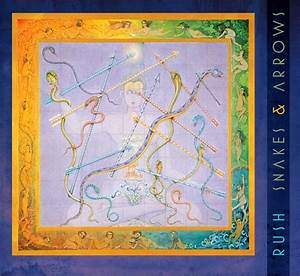 Yet, all of these words of wisdom seemed to stop flowing once Rush retired their trio from the road after their final tour in 2015. Peart had allegedly retired from drumming as well as from Rush because of a nerve issue that was causing him pain. There had still been some hope lingering among fans. Some thought that maybe his band mates, bassist Geddy Lee and guitarist Alex Lifeson, could compose music, get Peart to occasionally record a drum track and put lyrics to new music, and, maybe, just maybe, Rush could release a new album without embarking on another tour.
Yet, all of these words of wisdom seemed to stop flowing once Rush retired their trio from the road after their final tour in 2015. Peart had allegedly retired from drumming as well as from Rush because of a nerve issue that was causing him pain. There had still been some hope lingering among fans. Some thought that maybe his band mates, bassist Geddy Lee and guitarist Alex Lifeson, could compose music, get Peart to occasionally record a drum track and put lyrics to new music, and, maybe, just maybe, Rush could release a new album without embarking on another tour.
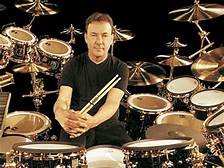
Neil Peart
That dream died Tuesday of last week when Peart succumbed, at age 67, from brain cancer, Glioblastoma. It did not surprise any who were familiar with Peart’s tenacity that he’d been fighting it for three and half years. He was like a locomotive that could never be derailed, having pedaled his bicycle across Africa, writing and publishing books between music projects, and continuously learning more about his musical instrument. Yet, that does not make his passing any less sad. All of that talent and all of that relatable knowledge in one man. All I can do is mourn for what I’ve lost, mourn the reality that his words will no longer be there for me to relate between now and the end of my own time. To comfort myself I will always have his music and his lyrics and memories, memories of seeing Rush play in concert, memories of running out to the music store to buy the latest Rush album, memories of sharing his music with others. Rest In Peace, Neil.

